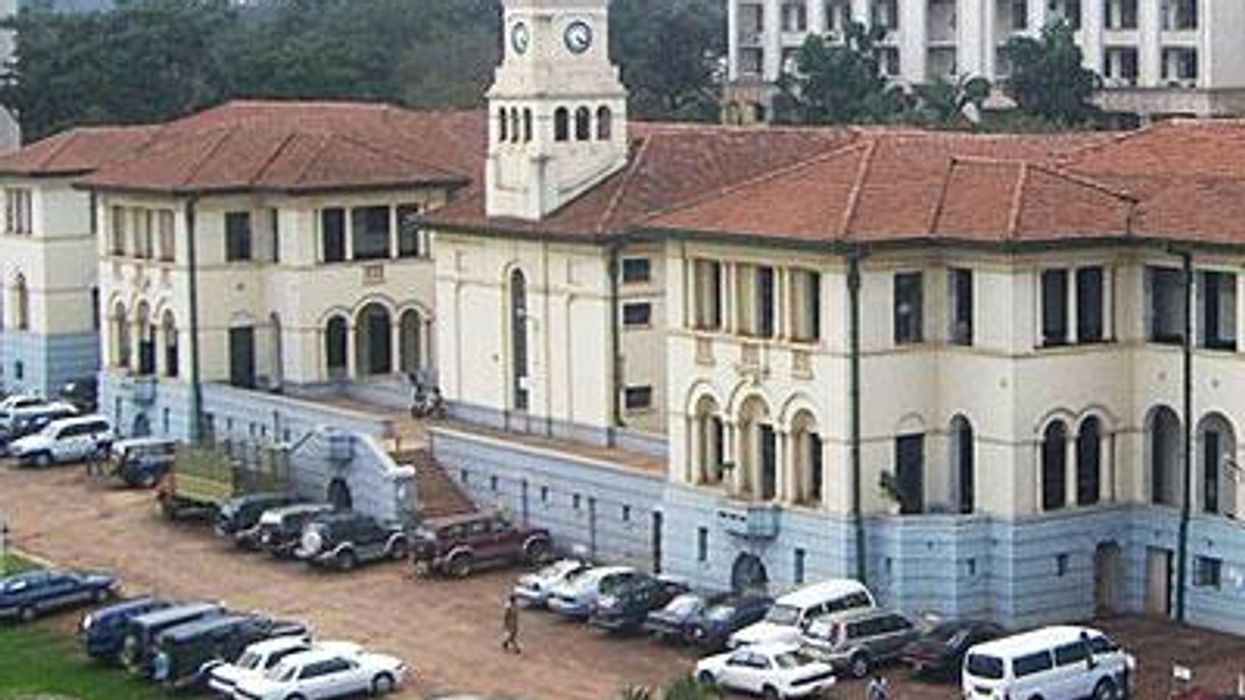A pair of LGBT Ugandans who were arrested in January on suspicion of engaging in prohibited sexual activity are scheduled to face a rare formal trial for allegedly committing sexual crimes "against the order of nature" on Wednesday, reports the Human Rights Campaign.
Kim Musika, a 24-year-old businessman, and Jackson Musaka, a 19-year-old transgender woman, are facing charges under Uganda's amended penal code, Section 145, which prohibits consensual sexual relationships between members of the same sex, reports blogger and activist Colin Stewart. According to numerous reports, the trial will be the first time that anyone has been brought to trial for allegedly violating Section 145, which was drafted during colonial rule and enacted in 1950.
Notably, the pair are not being charged under Uganda's Anti-Homosexuality Act, which President Yoweri Museveni signed into law February 24 and which prescribes lifetime prison terms for "aggravated homosexuality" as well as lengthy jail sentences for any individual or organization found guilty of "aiding or abetting homosexuality."
Nevertheless, the two Ugandans could face lifetime prison sentences if they're found guilty of violating the colonial-era law that was reportedly rarely enforced before the escalation of violent antigay sentiment sparked by the Anti-Homosexuality Act's passage earlier this year.
The accused, who have been held in Luzira Prison since their January arrest, are being represented by the advocacy group Human Rights Awareness and Promotion Forum -- Uganda. The group's executive director, Adrian Jjuuko, told Stewart at his blog, 76 Crimes, that the legal team tried unsuccessfully to secure bail for the incarcerated Ugandans.
Jjuuko confirmed that Musika and Musaka are facing charges of "'carnal knowledge against the order of nature' and 'permitting a male person to have carnal knowledge of oneself against the order of nature,'" and explained that Musika was being beaten by a mob in late January when Human Rights Awareness officials intervened.
Since President Museveni signed the Anti-Homosexuality Act into law in February, LGBT Ugandans have been arrested, beaten, kidnapped, evicted from their homes, and harassed. Many formerly prominent activists and LGBT organizations have been forced underground or to flee the country, while Ugandan police last month raided an HIV and AIDS organization that was funded in part by the United States and operated in conjunction with Uganda's Makere University. Police arrested several clinic workers, claiming that they were "recruiting" young men into homosexuality by advocating for safer sex practices.
Last month Ugandan lawmakers announced draft legislation that would crack down on any foreign nongovernmental organizations working in Uganda if those groups were deemed to be "promoting homosexuality," an ill-defined catch-all term that has already been interpreted to include providing support, health care, housing, or even simply refusing to report LGBT people to the police. Another draft policy would require health care workers to disclose to the government the identities of LGBT patients or face incarceration themselves.
Despite widespread international criticism -- and some cuts to the foreign aid upon which the East African country heavily relies -- a vast majority of Ugandans say they support the anti-LGBT law, and many suspect that Museveni is using the issue of homosexuality to shore up support before he runs for re-election in 2016.





































































Charlie Kirk DID say stoning gay people was the 'perfect law' — and these other heinous quotes